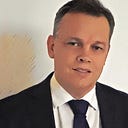Michael Bauwens[1], an ex-corporate executive and founder of the P2P Foundation[2], has outlined a future vision of the world where we shift from discrete Organisations that are competitive first in their approach and may or may not foster collaboration within their Organisation to a world where collaboration is first and competition occurs between Groups.
Similarly, Dr Otto Scharmer [3], Joshua Cooper Ramo [4], Niall Ferguson [5], and a range of other leading community thought leaders have described an environment where there is increasing recognition of our interconnectedness, interdependencies, and a need to develop an adaptive capacity to respond to an ever-expanding array of emerging challenges at a systems level.
Examples include rising global financial indebtedness, environmental sustainability challenges, geopolitics, global trade, the impact of technology, social inequality, social stagnation, etc.
These trends are leading us towards increasing fragility.
They can only be addressed via integrated thinking, collaboration, open inquiry, epistemological humility, and bringing together a heterodox range of perspectives that begin to recognise the higher-dimensional nature of the interrelationships and interdependencies of our Material World.
A number of these system imbalances result in a range of externalities that impact other parts of Society and further compound the complexity of the challenges we face.
We have written briefly in other editorial posts about the need to revisit some of the core assumptions of our Society, including our archetypes of Leadership, to ensure we are equipped to transition from a Classical to a Quantum World.
In observing the current leadership paradigm, we see five core challenges to an orthodoxy that does not equip us with the necessary capabilities to address the problems faced by a. Accelerating Technology Change, b. Rising Social Inequality, and c. Stagnation [6]:
1.Embracing Uncertainty: The general approach to Leadership is managerial or technocratic.
Scientific management, KPIs, and Six Sigma operational efficiency frameworks were taught in our Business Schools and MBA Programs during the 20th Century (Industrial Age) when there were higher degrees of certainty.
Our Leaders do not always have the new skills such as adaptive leadership, entrepreneurial management (e.g. Discovery Driven Growth), and Skills (e.g. collaboration, complex problem solving, listening, etc.) to navigate these shifts.
2. Ego State: For the last few decades in the western world, the prevailing approach to Leadership has been focussed on meeting the needs of oneself or an organisation or in economic terms — maximising utility or self-interest, optimising capital or economic efficiency, and maximising short term shareholder returns.
Increasingly there is a realisation that these approaches do not adequately acknowledge that no organisation is an island [7].
Every Organisation operates in a complex ecosystem with numerous stakeholders, including customers, employees, suppliers, capital providers, the community and the environment. Without connecting, collaborating, interactive learning and integral thinking, there will be little cognitive or material progress.
3. Control: According to Westrum R [8]. — A typology of organisation cultures — there are three types of organisations a. Pathological (power-orientated, co-operation low, messages shot, responsibilities avoided, failure equates to scapegoating, novelty crushed) b. Bureaucratic (rule-oriented, co-operation modest, messengers neglected, responsibility narrow, failure equates to justice, novelty equates to problems) and c. Generative (performance-orientated, co-operation high, messengers trained, shared risks, failure equates to inquiry and novelty enacted).
Given the accelerating change, generative cultures are well suited to embrace the shifts underway.
Simon Sinek [9] captures the transformation required in his book “Leaders eat last” when he says:
“Leaders are not simply those with authority. They are selfless figures willing to relinquish their best interest for the betterment of those they lead. Leaders, first and foremost, understand that the strength of the Organisation comes from people in the Organisation, not from their genius. The greatest leaders are the ones that trust people often know more than they do. The people at the top have all the authority, but the people at the bottom have all the information. And the opportunity is not to push the information up, but to push the authority down”…
4. Innovation: Professor Luis Perez Breva Innovation MIT [10] and Professor Clayton Christensen [11] Innovation Harvard Business School defines innovation around the concepts of “problems to be solved” and “jobs to be done”, which are really outputs and objectives of the innovation process.
Too often, innovation tends to be defined as inputs, such as STEM, technology, R&D, research, etc. which may or may not be essential to innovation.
Innovation is grounded in mindset — people, culture, collaboration, curiosity, problem-solving, empathy, failure, etc.
5. Cognitive Diversity: In Professor Desai from Harvard Business School’s book released in May 2017 titled — The Wisdom of Finance: Discovering Humanity in the World of Risk and Return [12] — he shares a range of acute observations anchored in stories around how the humanities can instruct and shape finance.
In the second chapter of this book, Risk Business, he explores how risk (i.e. our attempts to quantify uncertainty) is central to financé with diversification being the foundation of portfolio theory and the only free lunch.
Applying these perspectives to innovation—seeking out cognitive diversity is the only free lunch for an organisation in navigating these emerging trends.
Are we as a Society re-imagining leadership to navigate this emerging fitness landscape?
It’s the most critical inter-generational issue we face.
Footnotes:
[2] https://p2pfoundation.net/
[3] https://www.youtube.com/watch?v=GcbB1I__BmM
[7] https://www.nasa.gov/pdf/443532main_ASK_38_knowledge.pdf
[8] http://qualitysafety.bmj.com/content/13/suppl_2/ii22
[9] https://www.penguinrandomhouse.com/books/311389/leaders-eat-last-by-simon-sinek/9781591848011/
[10] http://entrepreneurship.mit.edu/profile/luis-perez-breva/
